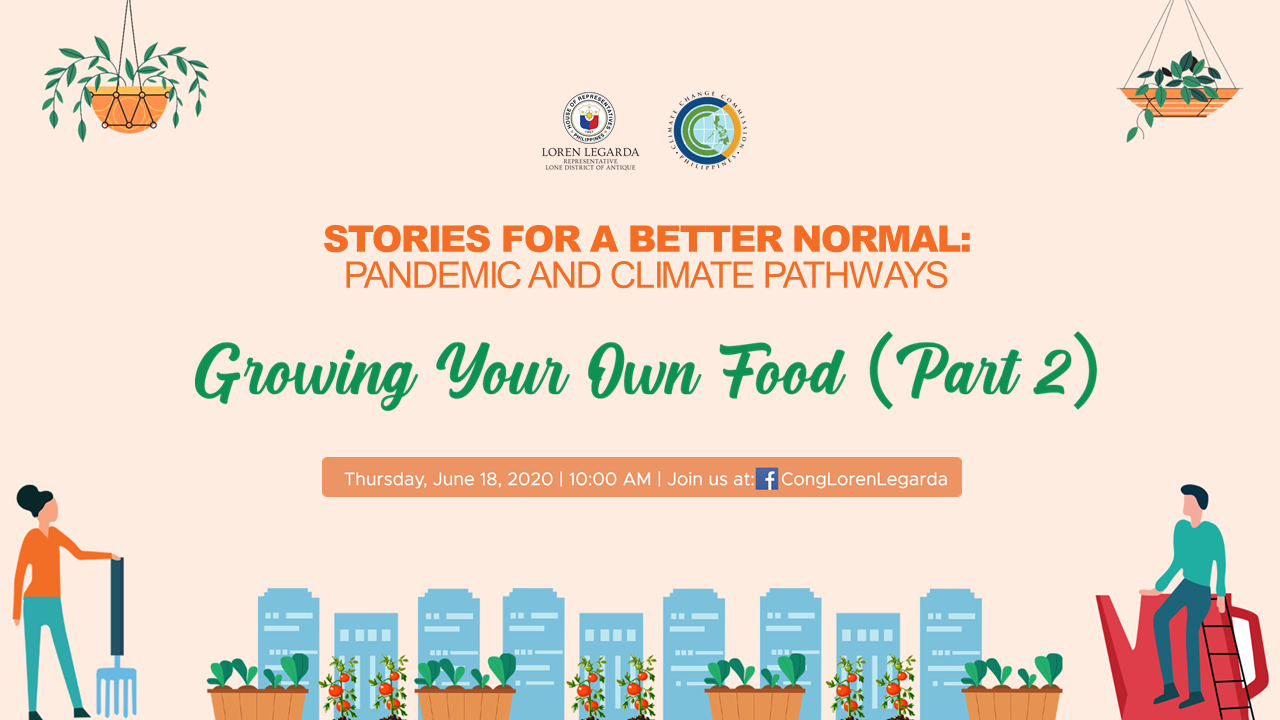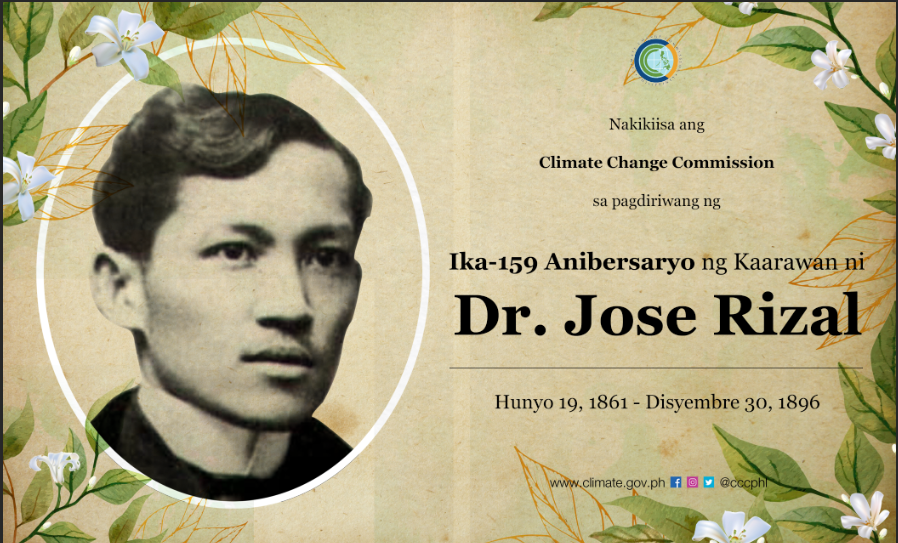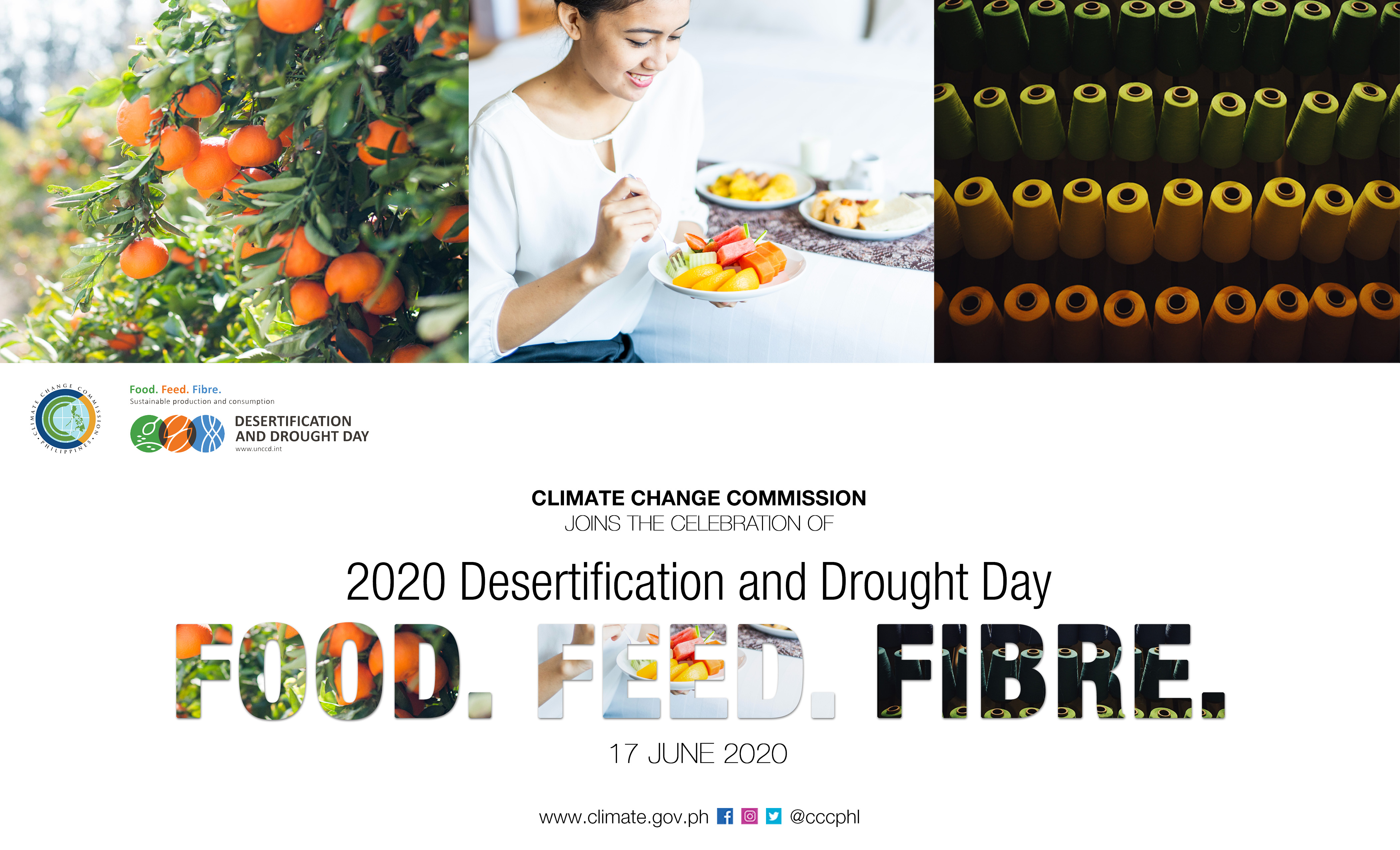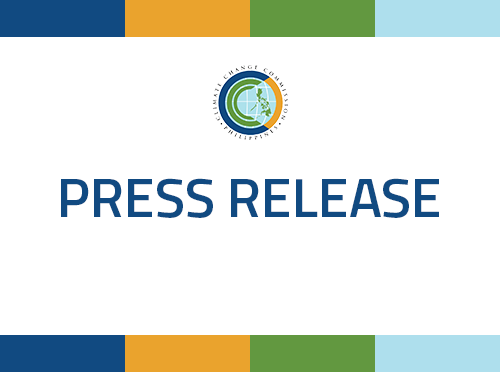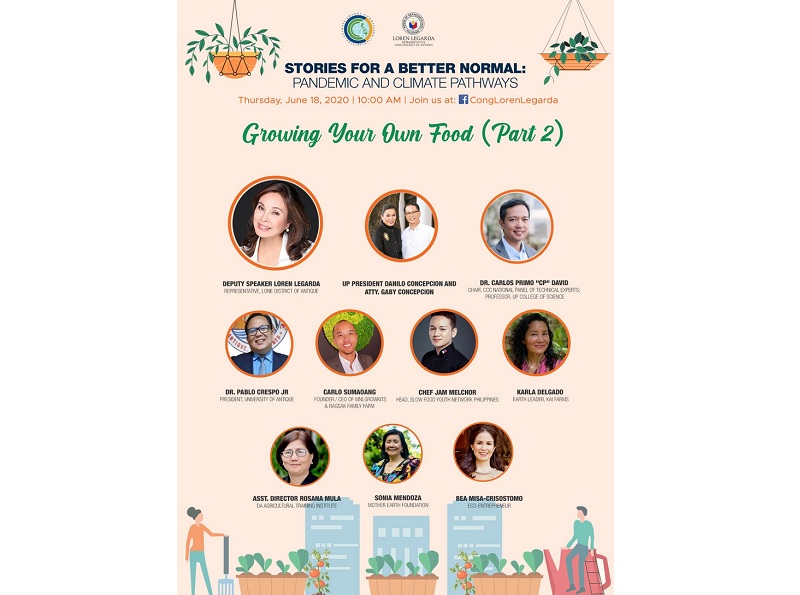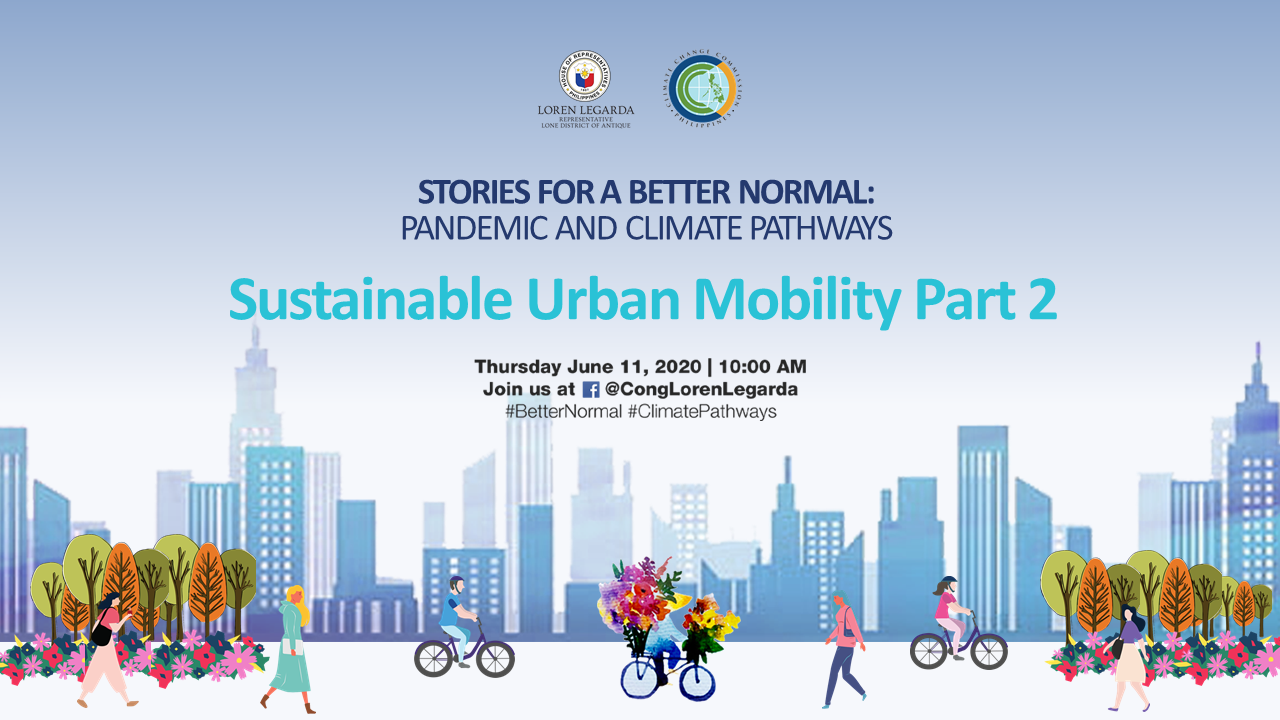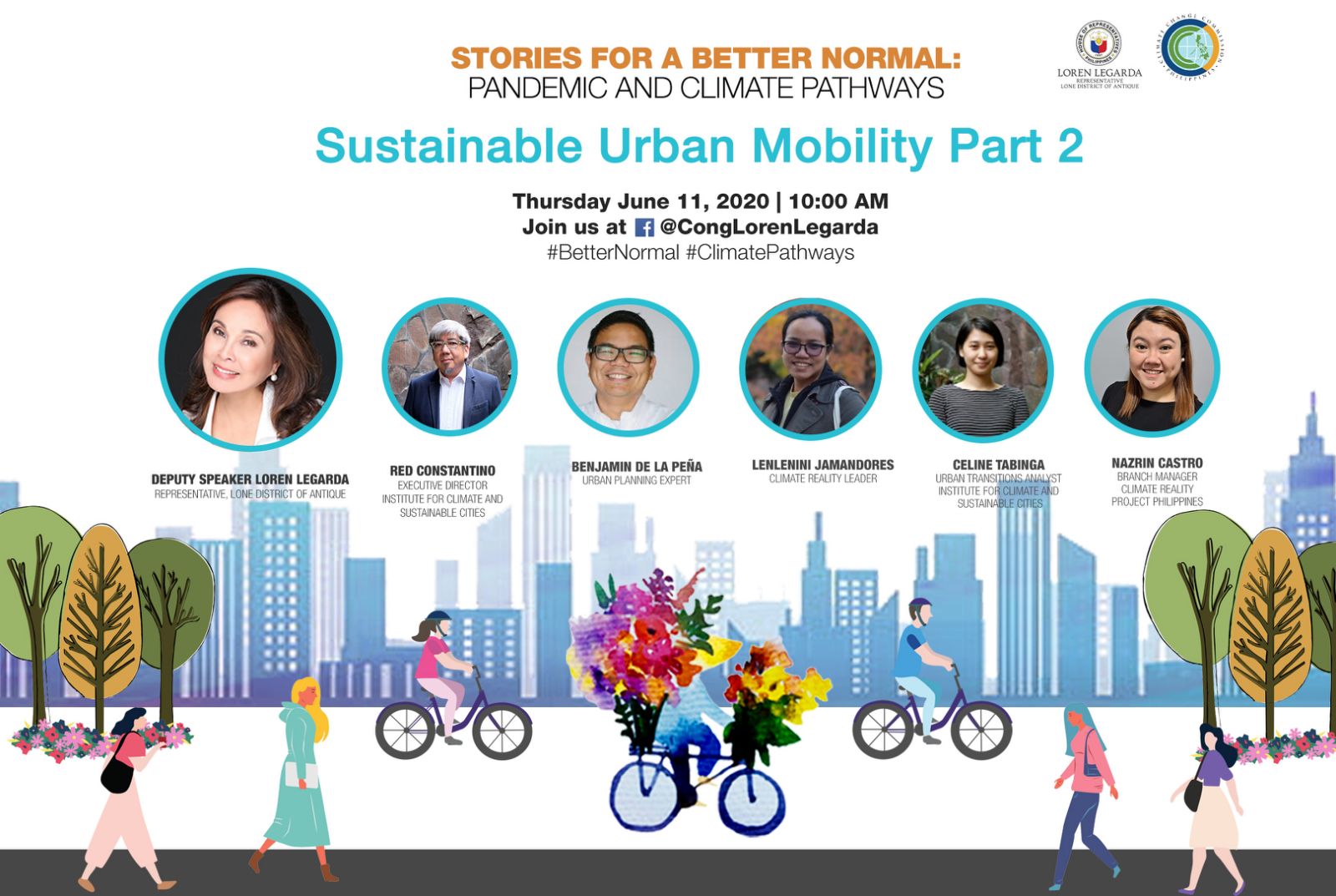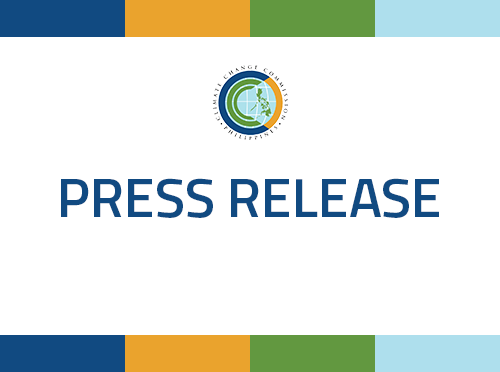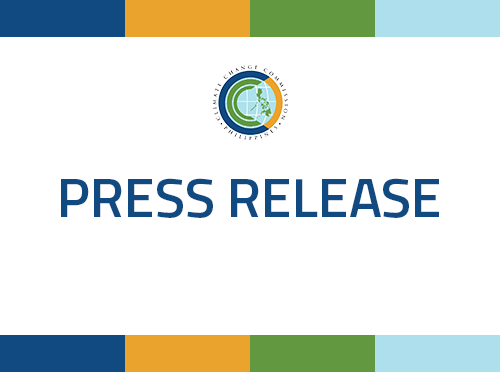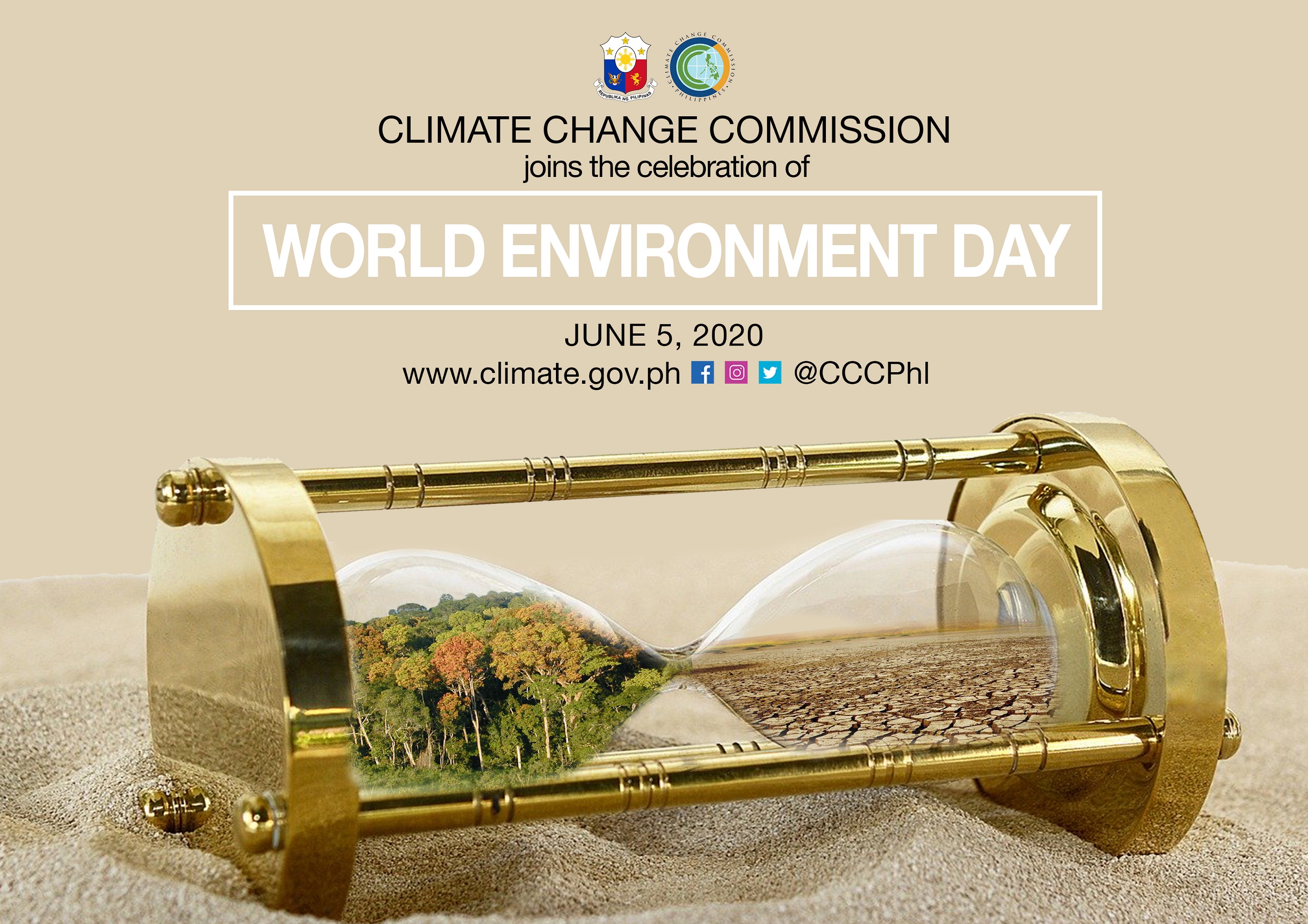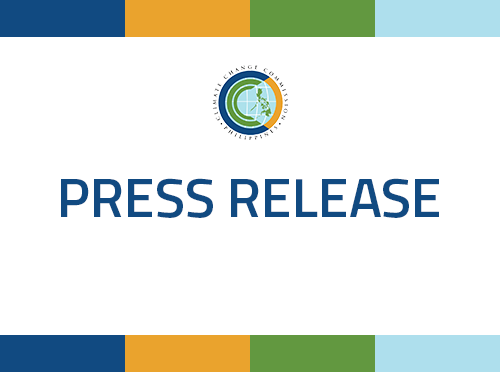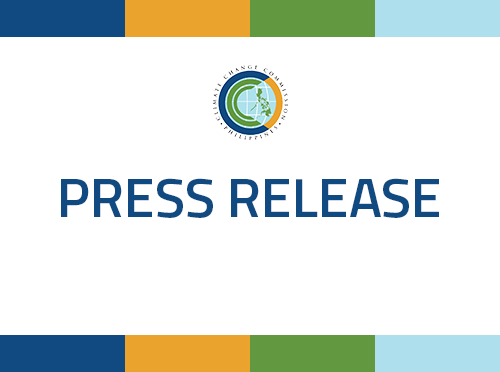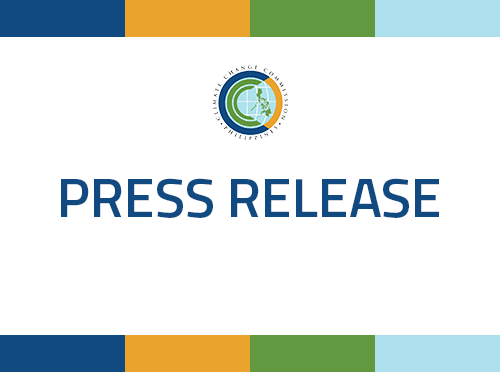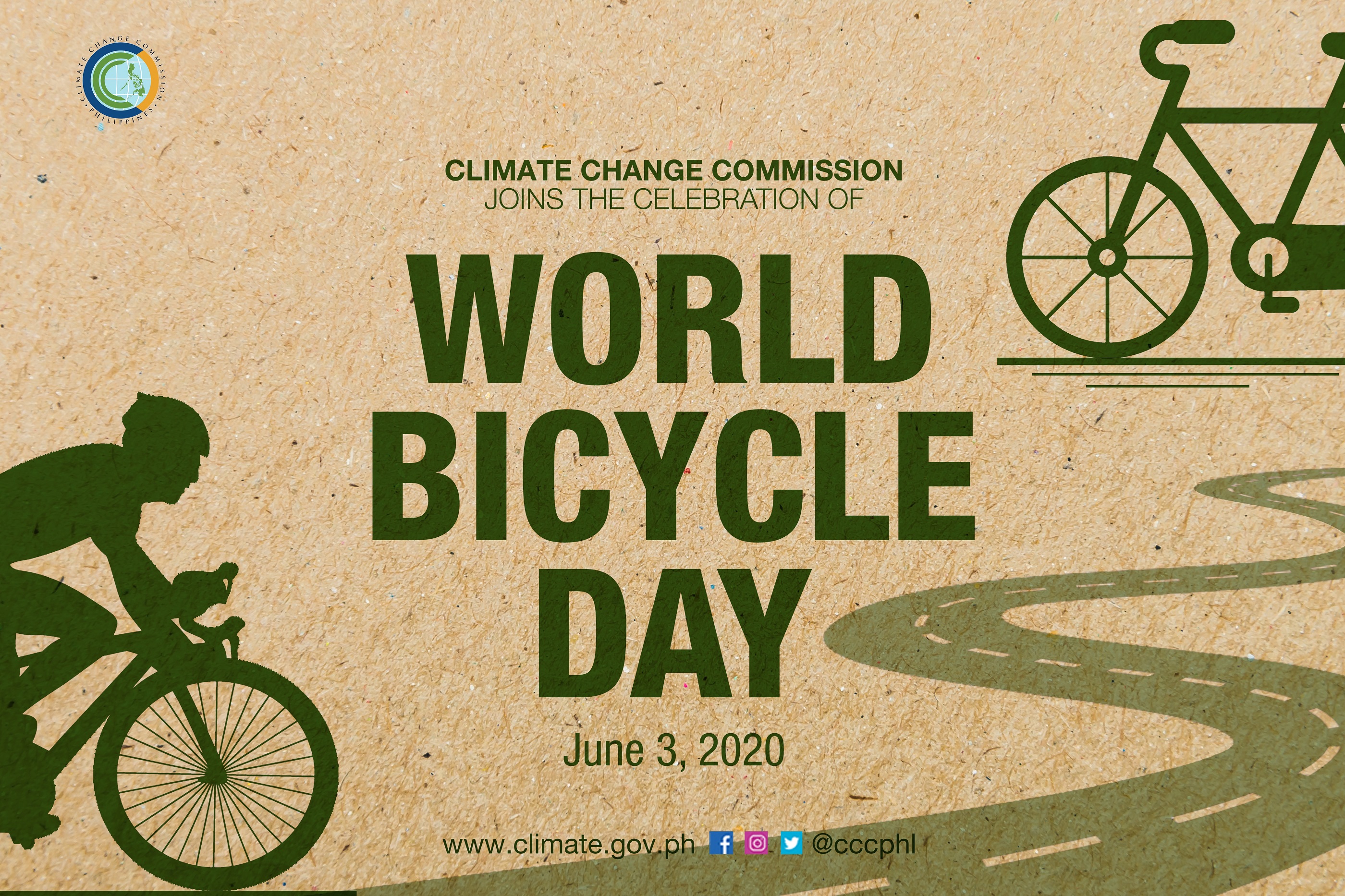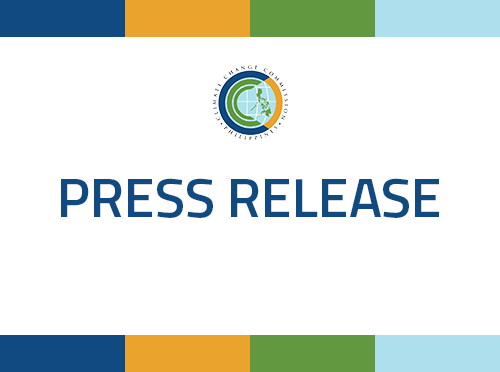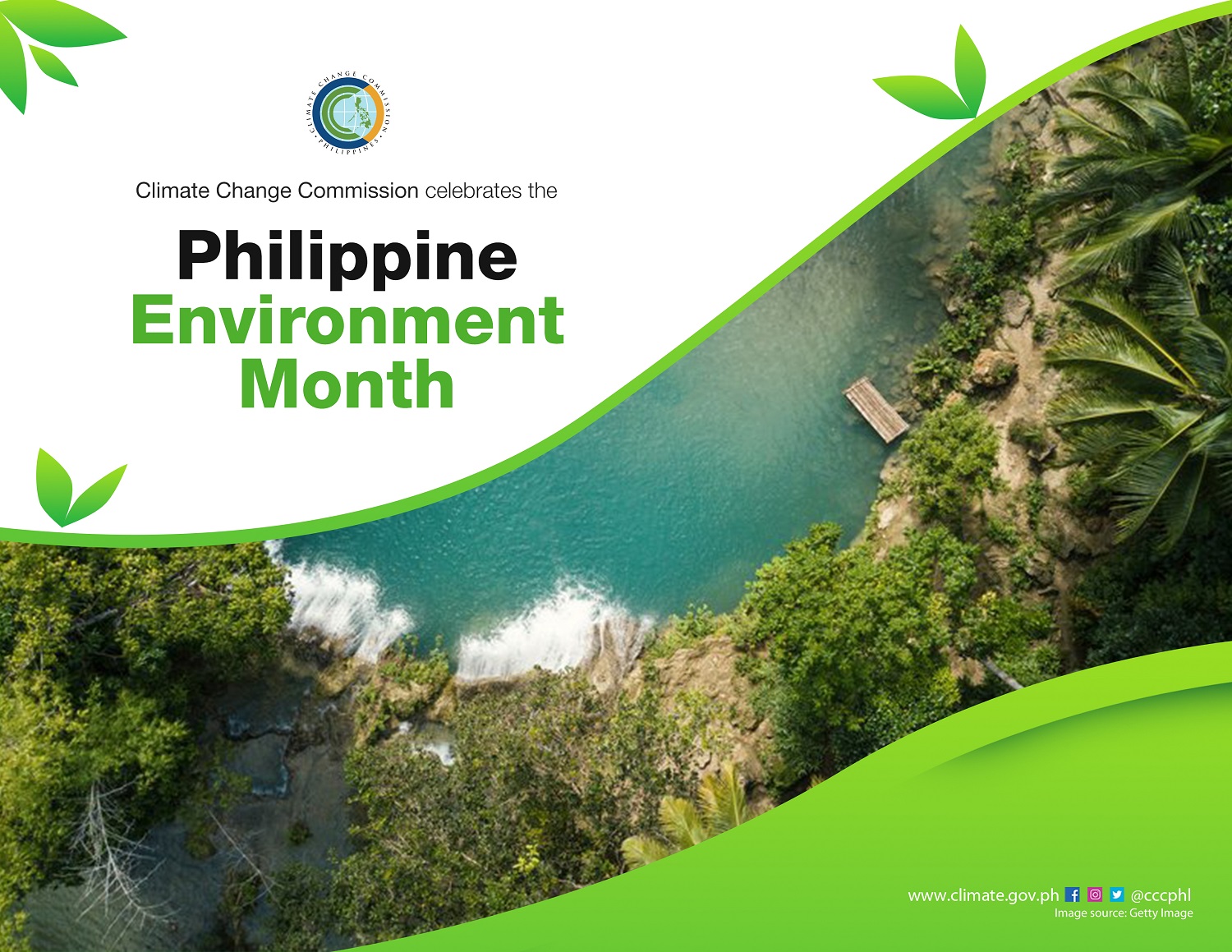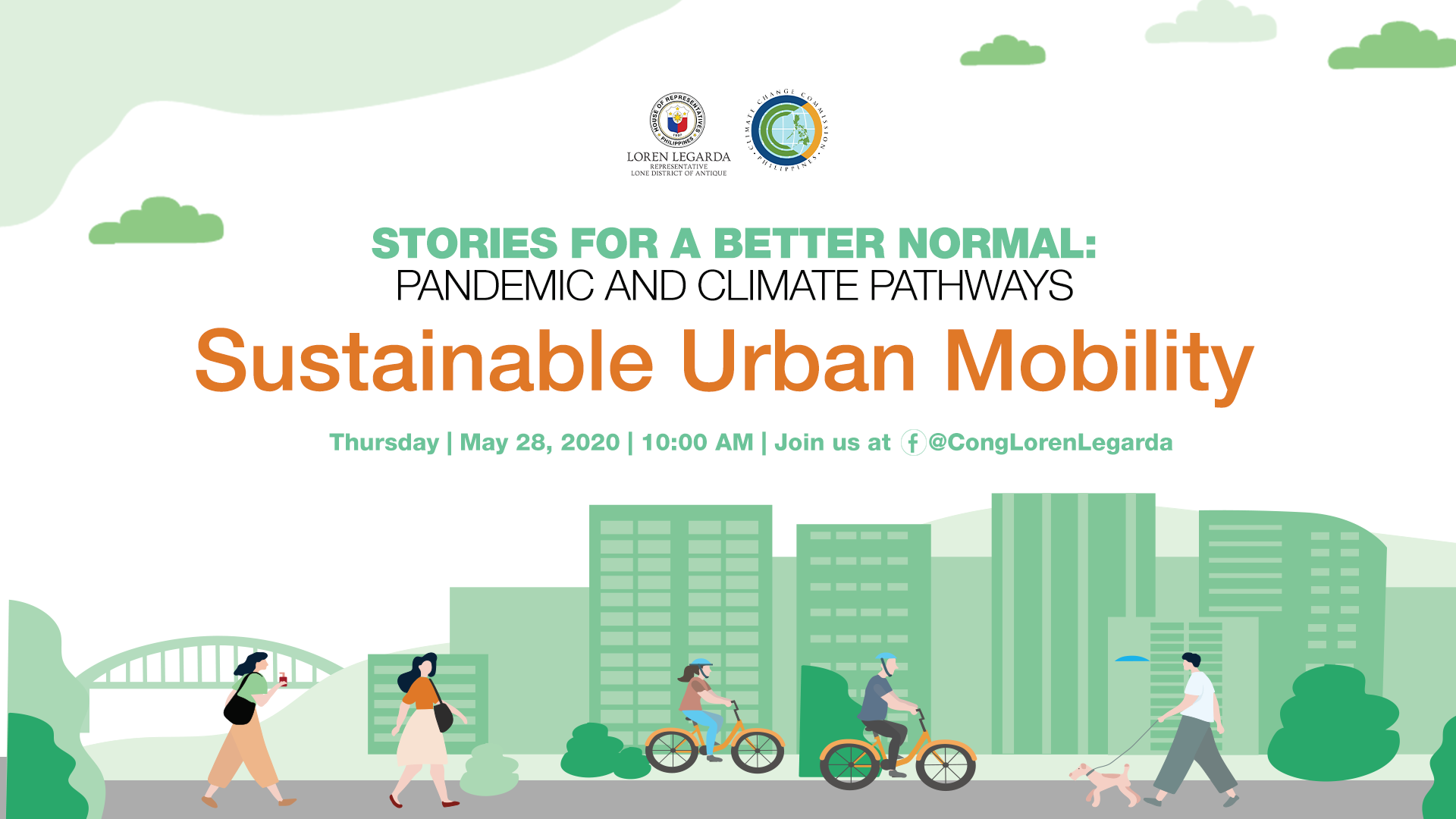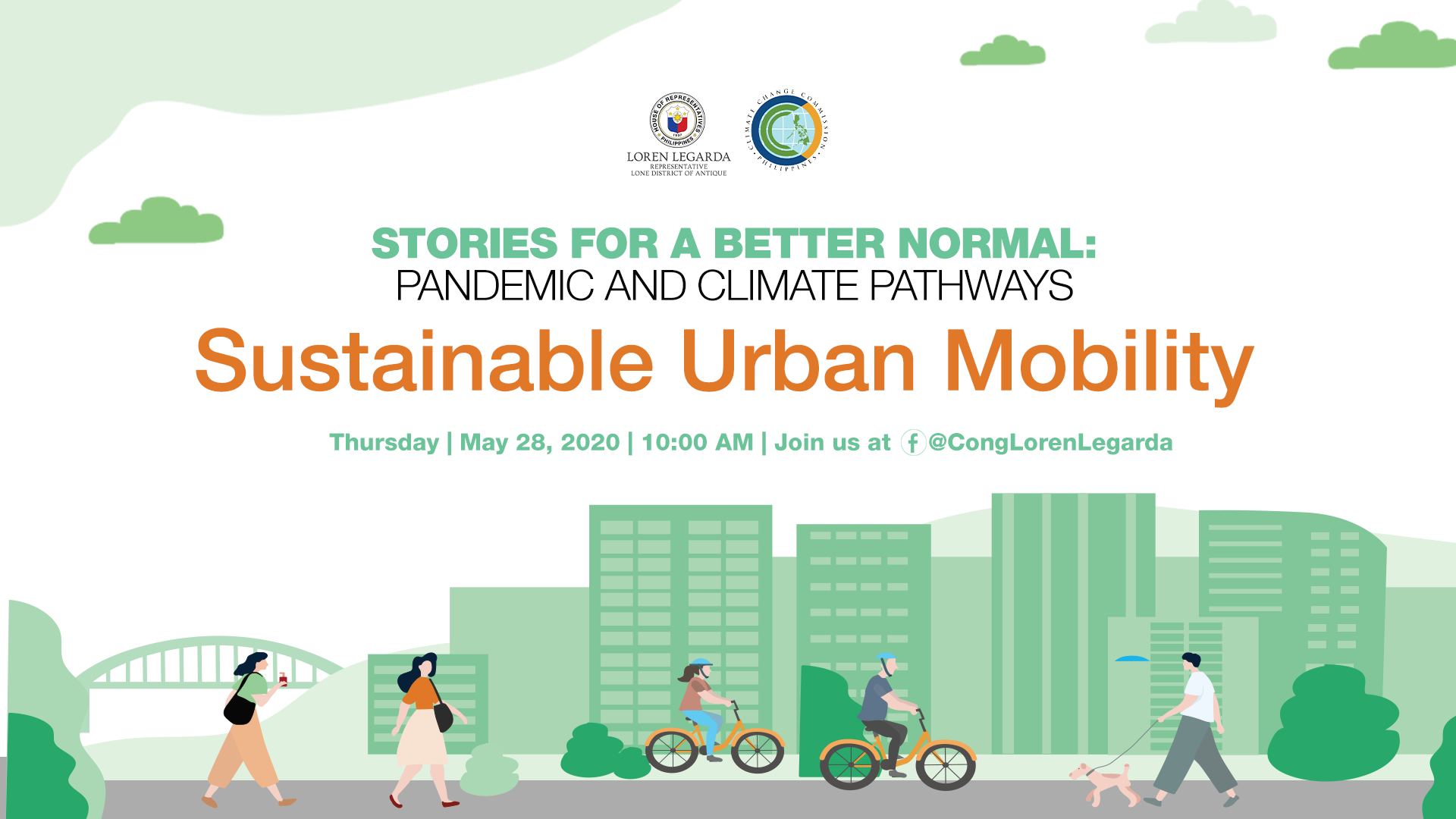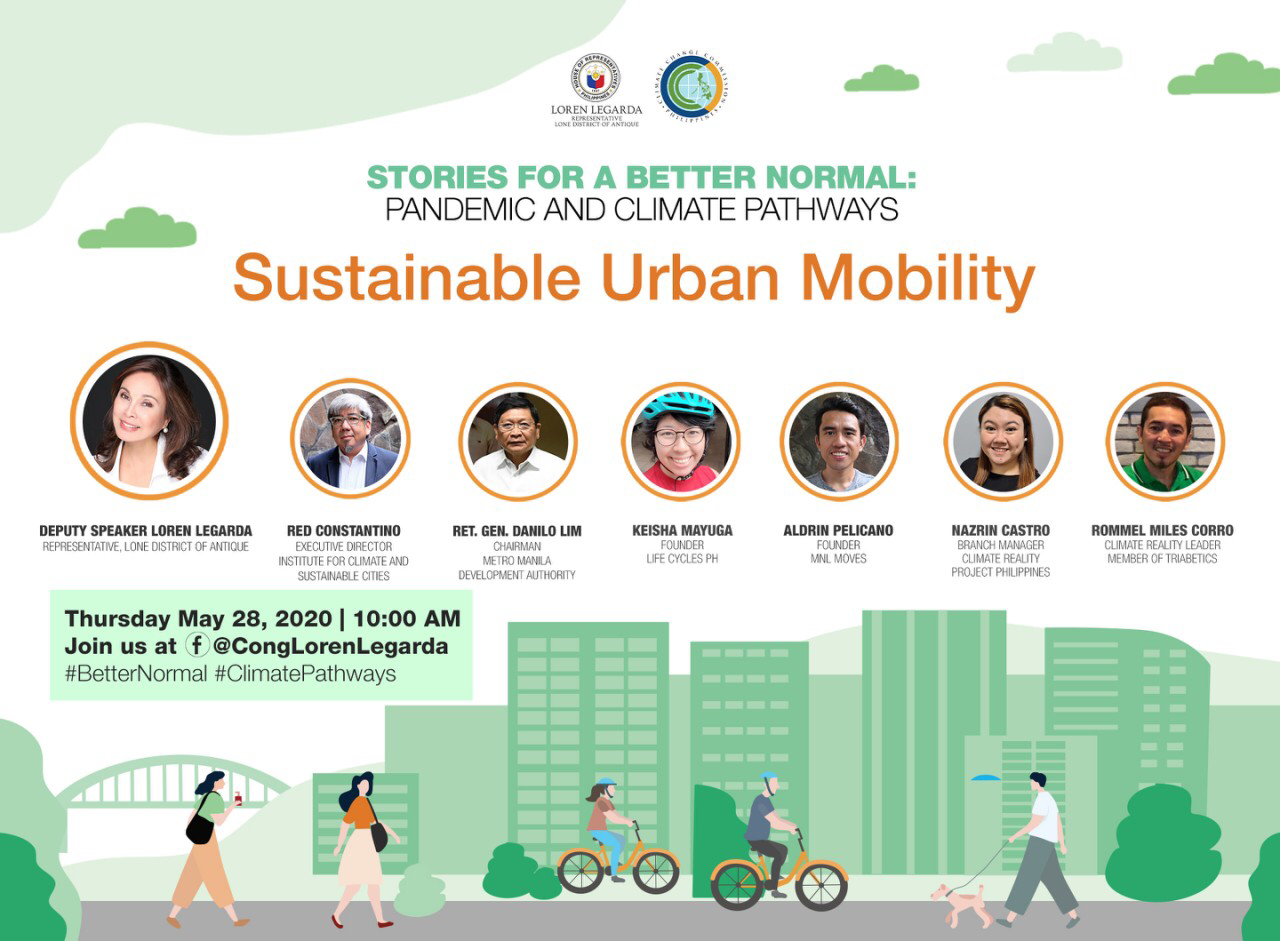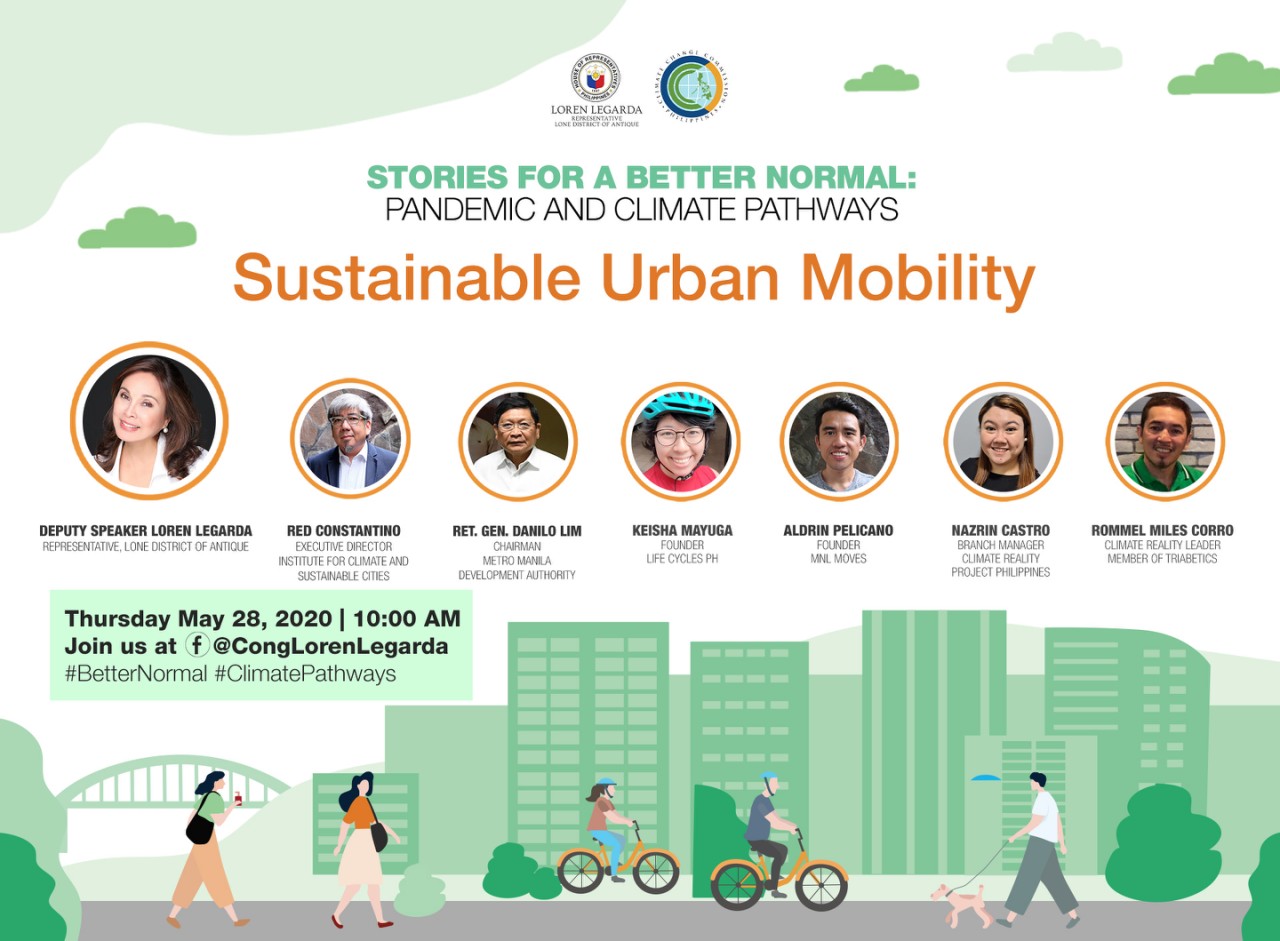MANILA, 19 June 2020 — During the 5th episode of the online series “Stories for a Better Normal: Pandemic and Climate Pathways” on the topic ‘Growing Your Own Food Part 2’, House Deputy Speaker and Antique Representative Loren Legarda featured urban farming and home gardening tips and advice from experts and advocates, as well as urged schools and millennials to follow suit.
The episode presented University of the Philippines (UP) President Danilo Concepcion and wife Atty. Gaby Concepcion; Dr. Carlos Primo “CP” David, chair of the Climate Change Commission’s (CCC) National Panel of Technical Experts (NPTE) and UP Diliman professor of Geology and Environmental Science; University of Antique President Dr. Pablo Crespo, Jr.; Carlo Sumaoang, founder of MNL Growkits Corporation; Chef Jam Melchor, head of Slow Food Youth Network Philippines and founder of the Philippine Culinary Heritage Movement; Karla Delgado, Earth Leader and director of Kai Farms; and Bea Misa-Crisostomo, owner of Ritual, who all shared practical information on food gardening.
Sonia Mendoza of Mother Earth Foundation, Atty. Paula Aberasturi of DowntoEarth PH, and Atty. Ipat Luna of the Department of Environment and Natural Resources also joined the online conversation as reactors.
President Concepcion and Atty. Gaby shared how the UP Diliman campus started converting their executive gardens into gulayan beds, and how the UP system could further encourage individuals to jumpstart their own food gardens through videos and online tutorials.
“Sa UP, mayroon tayong ilau-launch na isang programa upang turuan ang ating mga kababayan na walang bakuran para magtanim ng halaman. Karamihan po sa mga nakatira sa siyudad ay walang space. Sa TVUP (YouTube), maglau-launch kami ng tutorials kung papaano magtanim sa paso at saan ilalagay ang paso. Higit sa lahat, magtuturo kami ng hydroponics o kung papaano magtanim nang walang lupa sa loob ng bahay,” said Concepcion.
Dr. David discussed his proposal, Commercial Scale Urban Agriculture: Transforming UP Diliman as a Major Food Production Area, which aims to convert some of the university’s 25-hectare idle lands into a major food production area.
“Urban farming should not only be confined to our own backyards. If we look at Metro Manila, it is highly urbanized, but there are still pockets of land where we can do massive urban gardening and farming. By far, the largest open area in Metro Manila is the UP Diliman campus. The proposal is to make UP campus as a major food production area. The purpose of producing our own food connects a lot to climate change. During times of calamities, flooding and pandemic, we want our food to be within our reach and know that it is fresh and free of pesticides,” said Dr. David.
Dr. Crespo shared some initiatives of the University of Antique to promote edible landscapes and resilient agriculture.
“Marami tayong mga plants and herbs na akala natin hindi kinakain, pero nakakain pala. So we’ve been coming up with a book about this. We also have one project now with the Central Philippines State University that has perfected a technology on vermicomposting. We will make sure na sa lahat ng campuses ng University of Antique ay mag-vermicomposting kami,” said Dr. Crespo.
Legarda then urged other state universities, colleges, and even private schools to utilize spaces and plant vegetables, edible flowers, and trees within their campus and called for the strict implementation of Republic Act No. 9003 or the Ecological Solid Waste Management Act of 2001 where segregation at source, recycling, and composting practices are followed.
Ms. Mendoza shared the different methods of composting, such as underground composting, clay pot composting, using tire towers, and vermicomposting, which can be done within households.
Sumaoang recalled how he introduced organic grow kits in the Philippines through MNL Growkits and shared how urban gardening became a growing interest and more relatable even among millennials.
“The objective of MNL Growkits is basically palitan ‘yung perception ng mga kabataan towards farming. Naglabas po kami ng grow kits. Lahat ng kailangan para mag-start magpalaki ng halaman ay nasa isang box. We really try to make farming relatable. We’re very happy to say that, after so many years of inviting people to farm, ang dami na ngayong first-time growers na talagang tuluy-tuloy na ang pagtatanim nila,” he said.
Chef Melchor, an advocate for slow food and food mapping, shared his efforts on fighting food waste and promoting urban and sustainable agriculture, especially among the youth.
“Our objective is to fight food waste. We also reached out to our LGUs that instead of giving out canned goods, fresh produce ang kanilang ipamigay. We also want to teach our youth na dapat ang approach nila sa pagkain is multi-faceted. Dapat ‘di lang sila active sa keyboard, pero lumabas sila para magtanim, makihalubilo sa mga farmers, at bumisita sa mga farms. Kami din pong mga chefs, hindi lang dapat nagluluto, dapat alam namin kung saan nanggagaling ‘yung pagkain,” said Melchor.
Legarda supported the food mapping project of the Slow Food Youth Network Philippines mentioned by Melchor and also asked the UP System, CCC, and The Climate Reality Project Philippines to help in this initiative.
Karla Delgado, an owner of a permaculture farm engaged in seed saving and education for sustainability, shared her top three reasons why we should save seeds.
“One, seeds are wealth. Currently in the Philippines, most farms buy seeds. So by saving our own seeds, farms will be able to save cash in their farming operations. Two, seeds promote food security. The answer to food security is families and households planting food in their backyard, in pots, or any space they can manage. And third, seeds protect biodiversity and promote a healthy gut. Eating local, biodiverse, and organic food will keep us healthy and strong,” Delgado said.
Bea Misa-Crisostomo, an eco-entrepreneur, shared her experience in establishing Ritual, a sustainable general store, and her efforts to promote biocultural diversity.
“We said if we are going to do a store, then we don’t want to use plastic. We put up the store and said zero waste is the “how” and not the “what” of our business. Ritual focuses on biocultural diversity. We wanted to represent local products, heritage products, and start helping at least one farmer at a time. It works in a palengke setting because most people want access to their regional products,” said Crisostomo.
To close, Legarda, a backyard farmer herself, stressed how food gardening and sustainable farming can help ensure food availability and supply in our households, while helping protect the environment and climate.
“Food gardening teaches us how to be self-sustainable. It tries to correct our hyperconsumerist mindset, which is killing our planet. It teaches us to segregate and recycle, to save our seeds and plant what we eat, and to grow our own food no matter how small a place we live in. These small steps can really impact our communities in a huge way,” Legarda concluded.
As an online discussion to promote health, environmental consciousness, and climate-adaptive practices, Stories for a Better Normal aims to change the mindset of individuals, families, and communities to lead sustainable lives towards a healthier, safer, and much better normal than we used to have.
This online discussion is organized in partnership between the Office of Deputy Speaker Legarda and the Climate Change Commission (CCC), with support from the Institute for Climate and Sustainable Cities (ICSC), The Climate Reality Project-Philippines, and Mother Earth Foundation.
June 18, 2020 Thursday

